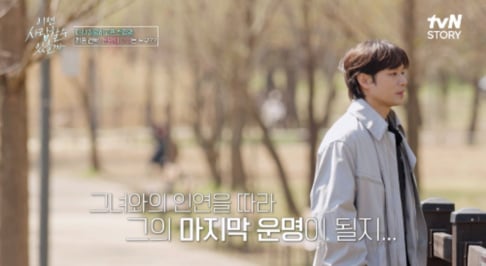
"I'm an underaged juvenile. When will the investigation finish? I learned at a law camp that I won't be punished if I'm under the age of 14." - This is a line from the recent popular drama 'Stranger 2'.
The 'Stranger 2' character in middle school said the above line after assaulting his fellow classmate in response to the prosecutor during a prosecution investigation.
However, such boldness of these juvenile offenders is no longer seen only in dramas but in reality as well. These kids know their way around the law and now laugh at the investigation agencies. One police officer stated, "These teenagers know that they will not be severely punished by the law even if they commit a serious crime. There are times that these kids just outright say they know this."
◇ Arrest warrants for middle school students accused of stealing 60 million KRW (~$51,509) rejected by the court
According to the Uijeongbu Law Support Center and the police, luxurious watches, bags, and jewelry worth millions of KRWs were stolen from a vehicle parked in an underground parking lot of an apartment complex in Uijeongbu, Gyeonggi Province at 9 PM back on August 9th.
After investigating and tracking down the clues, the police found that the suspects were two middle school students aged 14 and 15 who lived nearby.
It was also confirmed that they stole cash from another vehicle parked at the underground parking lot of an apartment complex in Yangju, Gyeonggi Province, the day before. The teenagers stole approximately 60 million KRW (~51,509 USD) worth of items in total.
After the police tracked down the two teenagers, they were able to arrest them at a motel room nearby. Even as the teenagers were being taken to the police station, they had a brazen attitude stating, "Oh well, it's not like we're going to be punished severely anyway."
It was revealed that the 14-year-old had a long criminal record of 77 crimes, and the 15-year-old had 13 crimes on his record. In particular, these two teenage boys already received a two-year probation order a year ago due to their criminal records of special theft. Currently, the 14-year-old is facing trial in other cases and has been given a stay-at-home order.
The police requested arrest warrants for them but were rejected at the prosecution stage because the boys were young and returned the stolen goods. Eventually, the two teenagers were released after the police investigation.

It was revealed that the two boys are runaway teenagers.
One of the biggest difficulties, when runaway teenagers commit crimes, is that these teenagers are not afraid of being arrested.
They are aware of the level of punishment for juvenile offenders through information released on the Internet or sharing information among themselves and often ridicule investigative agencies even after being caught.
A police official who was investigating the case said, "From experience, young offenders know that the police will let them go home after the investigation is completed. Therefore, instead of worrying about being caught by the police, they steal the money they need and spend it right away."
Another police official said, "Even if we contact their parents, their parents don't care for the children" and added, "Even if they are in school, they are considered students who are already out of the bounds of the education system."

This is occurring because of the new "Juvenile Law" which was enacted to protect children and teach them rather than to punish them. This law held the purpose to prevent teenagers from being limited in life and being blocked from opportunities before they take their first steps into society.
The "Juvenile Law" is set in two parts - juvenile criminals from the ages of 10 to 14 will not be subject to criminal penalty and teens from ages 14 to 19 will be under the "Juvenile criminal" punishment.
According to this law, teenagers who are in the middle school student age group will not be subject to arrest unless they commit very serious crimes such as murder. Even if a teen is booked by the police for committing theft or assault, he or she is often released with a warning or suspended from indictment.
Recently, many teenagers have been using this law to their advantage therefore many are requesting to reevaluate the purpose of this law. In Korea, there have been constant calls for the revision of the juvenile law. Many youth experts state that strengthening punishment is not a good way to lower recidivism.
 SHARE
SHARE














































It was only a matter of time. When you see people basically getting a slap on the wrist even for heinous crimes, you’ll try to see what you can pull off too. They need to indict and sentence criminals more seriously and harshly.
1 more reply